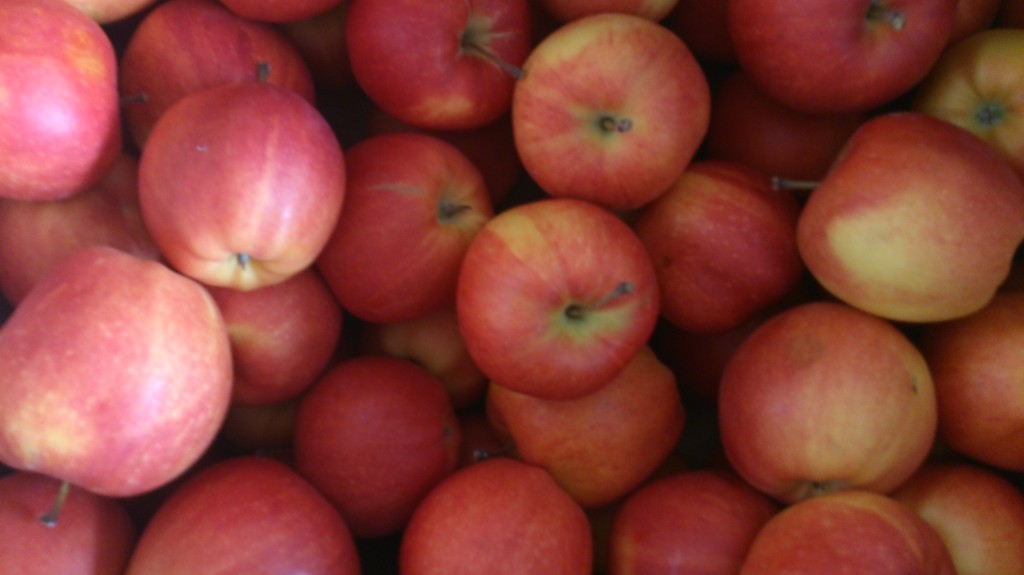We at holistic health consulting, are over-the-moon to welcome this guest contribution, the author of this post, ‘National Organic Week in Canada’ is:Â Dr. Catherine Trask!
This Saturday marks the start of National Organic Week in Canada (September 21-28). There couldn’t be a more appropriate time of year for a celebration of fresh food and produce; as Elizabeth has noted on social media there is an abundance of wonderful fresh foods available right now. That is really something to get excited about!
The organic week website describes local events in many parts of Canada, and lots of these are famer’s market events that give an opportunity to meet the farmers and get fresh local food. The measurable health benefits of eating organic food are not clear in scientific studies. Since we all share the same soil, air, and water, pesticide contamination is often also found on organic crops, albeit in lower amounts. So why would one buy organic? One can consider not only pesticide exposure, but other aspects of food and environmental quality. There are clearly differences in the characteristics of a garden-grown heritage tomato grown in your neighbourhood and a genetically-modified, hyper-resistant tomato that can endure thousands of kilometers of travel to make it to your plate.  An older variety of tomato might not be as large or thick-skinned , but it might also have more vitamins (something that isn’t captured if you test two identical crops and only spray one of them). As a consumer, your choices can help limit the amount of pesticide and synthetic fertilizer released into the environment. Historically organic producers were also smaller, family-run farms, so an organic purchase was more likely to be local and sustainable.  With the entry of agri-corporations into the organic marketplace this is not always the case, so you might actually support your local farmer with non-organic foods that you buy from a farmer’s market or on the farm. I would encourage folks to appreciate foods that contribute broadly to community and environmental health: locally-produced, organic, or non-standard varietals (such as heirloom tomatoes or red fife wheat).
I spent many years shopping on a student’s budget, and as with many other individuals and families it was just not financially viable to buy organic all the time.  Taking inspiration from Elizabeth’s concept of holistic health, living under financial stress does not support optimal health. Therefore, it might make sense for you to start small or to make limited changes that fit your budget. If you are interested in introducing some organic food, you may consider starting with those foods listed on the Environmental Working Group’s ‘Dirty Dozen’. On average, these foods typically have more residue.
Organic foods, along with farmer’s market or non-standard foods, almost always cost a bit more, but the way you incorporate them into your lifestyle and kitchen habits can help. If you conceptualize these foods as ‘treasured treats’ then you are unlikely to waste any of them of leave them to spoil. Buying an organic chicken? Use the bones for stock. Buying beets from the farmer? You can eat the tops too, just like chard or spinach. Like everything else, these kitchen habits take a bit learning. I have found the blog ‘Mennonite girls can cook’ to be a great inspiration on this front; they have lots of great recipes to use in-season produce, as well as great tips to eliminate waste and make use of everything.  This blog in particular does a great job of presenting food as a pleasure and not a chore. Posts this time of year emphasize storing and preparing for winter as a way to mark the seasons and acknowledge our history and our ancestors. This doesn’t need to mean canning 80lbs of fruit, it can be as simple as freezing some blackberries and a litre of soup for a rainy Fall night to come.

Many of the most delicious berries are far too delicate to transport, your best bet to taste these fragile little treasures, is to visit your local farmer’s market or family-run produce stand. The berries don’t survive long once they are picked, but they certainly can be frozen and enjoyed later.
I hope you enjoy the season and the seasonal produce, and enjoy the organic week events in your community.  However, please avoid feeling that non-organic foods are not nourishing, or that you cannot live healthfully without them. Wash all your produce (including organic!) and look for opportunities to connect with the food that nourishes you: when you can, start with the raw/unprocessed food, meet the farmers, and develop an awareness of the food production system.
Bon appétit!
Post Author: Dr. Catherine Trask



